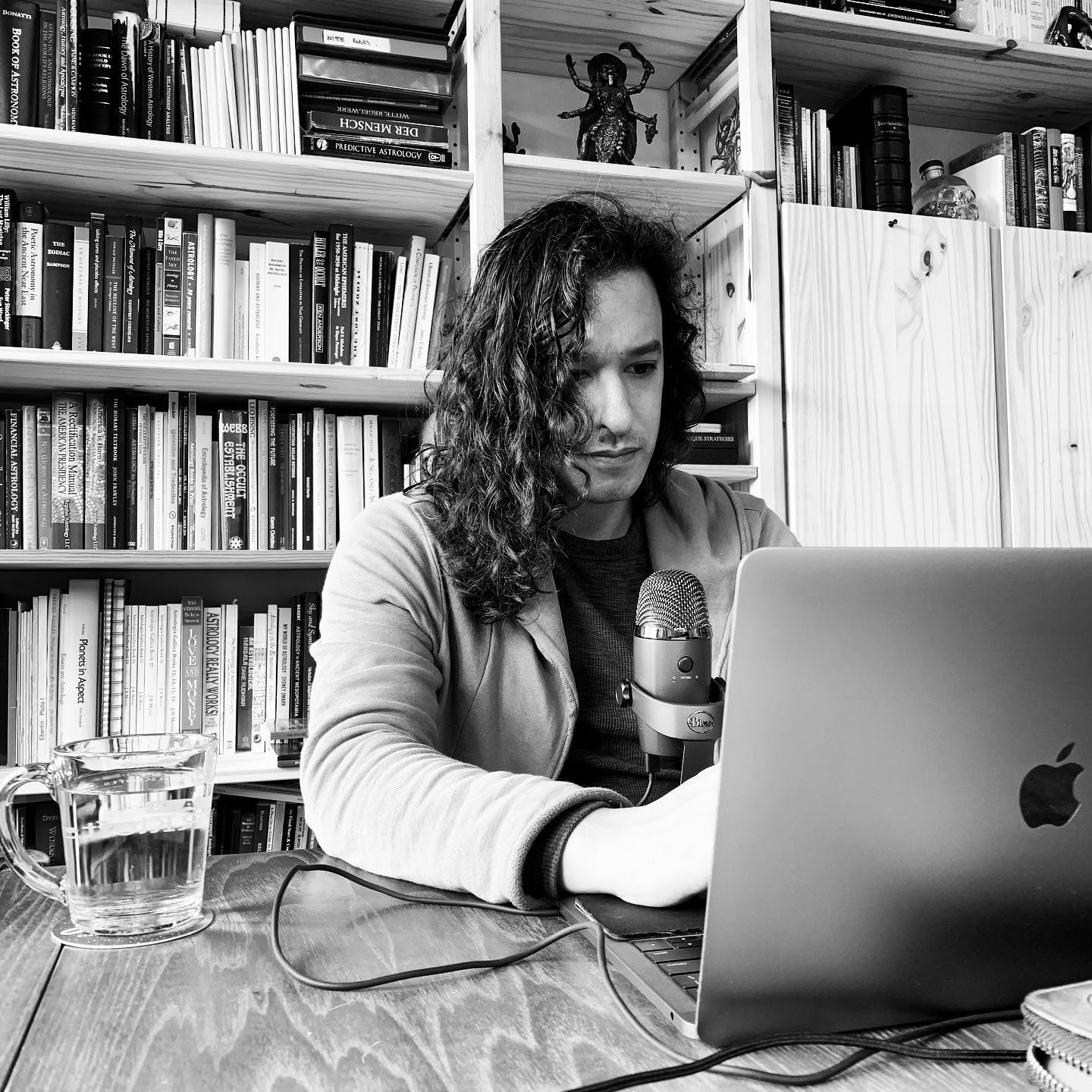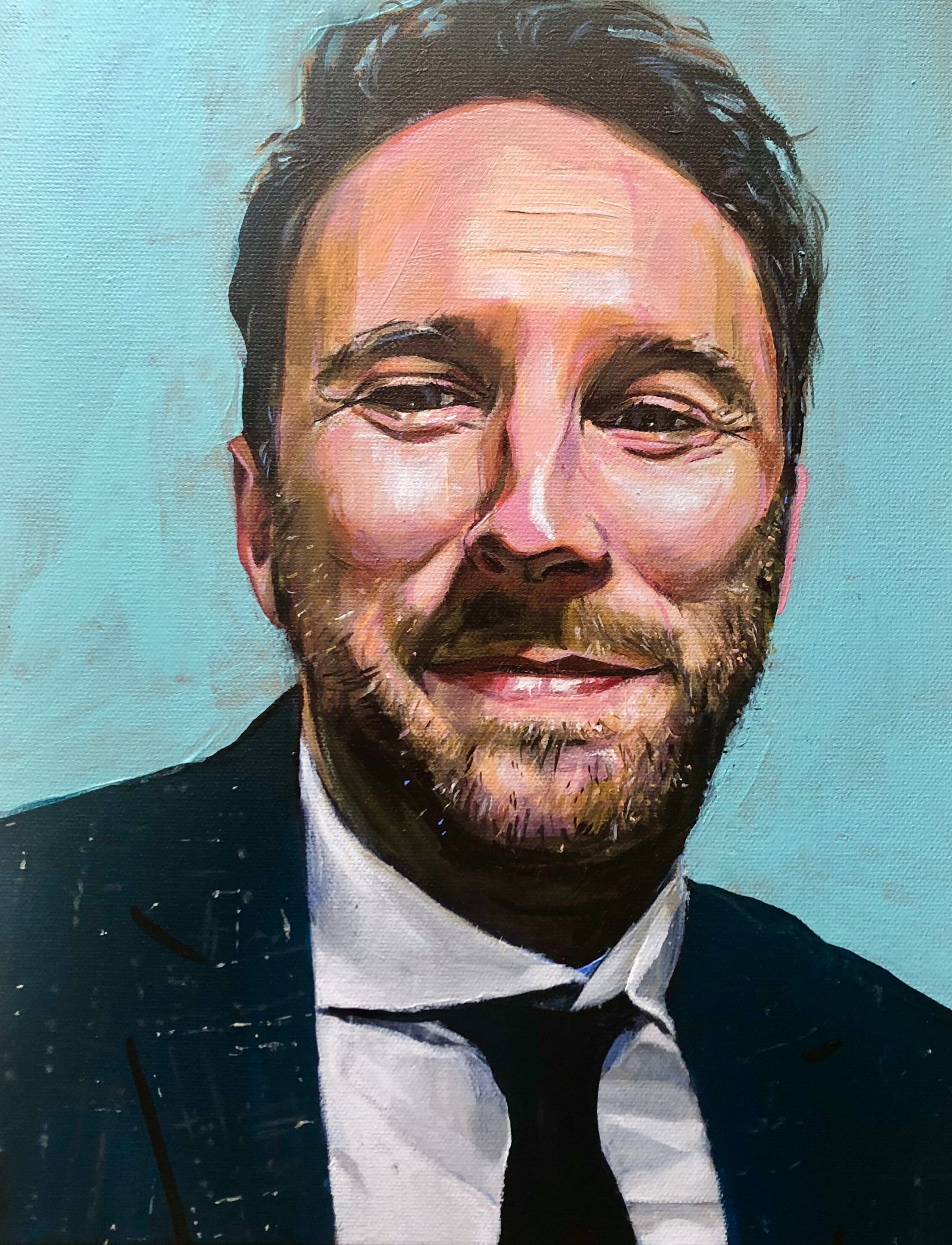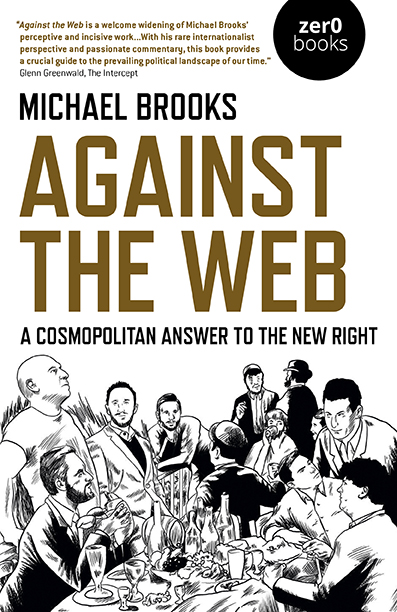Jeremy D Johnson

I found myself struggling to find the appropriate leading note for this discussion. History seems to have irrupted this year, reminding us that, after all, things are still happening “out there” in the polis and “in here,” the indwelling and painful irruptions of new possibilities, and new regenerative visions, of a world enacted with more compassion, more empathy, more planetary thinking. It’s painful, perhaps, because we remain in a kind of liminal tension between visions of such a better world that have been highlighted by the COVID-19 pandemic and how much our present reality is the furthest thing from. The present, however, is breaking apart. We should stay with that for a moment.
Historical Intensifications, or Going Meta about COVID-19
As systemic crises go, this one checks off all the boxes—biological, ecological, economic, political, cultural. You name it, we got it. At one point in this ILR issue’s interview between Robin Lincoln Wood and Kathleen Andrews, they highlight the lack of systems thinking in worldwide education. Stated rather hyperbolically for 2020: the world, these times have become the greatest systems thinking teacher. While teaching my Winter 2020 Jean Gebser course, I’d often gesture to the window and say, “when Gebser was talking about dramatic mutational periods in cultural evolution, he was talking about what’s happening right now.”
Right now, the world is the classroom. I keep going back to Zak Stein’s comments in his “COVID-19: A War Broken Out in Heaven,” where he writes that, “the pandemic has accelerated trends that were already playing out for the last decade,” and that many of these trends highlight the death knell of modernist education models (i.e., the classroom-as-factory). COVID has forced our hand, in a sense—pushed us off the ledge we’ve been reticent to leap from. But the possibilities are there, and they are regenerative. “Funded to the hilt and staffed by citizen-teacher-scientists,” Stein imagines the regenerative response to accelerated collapse of modernist systems:
“… [future] public and privately supported learning hubs would be the local centres of regionally decentralised pop-up classrooms… Giant schools built on the model of early twentieth century factories can be gutted, remodelled, and reborn, metaphorically and literally, to create the meta-industrial one-room schoolhouses of the future.”
Michel Bauwens, a P2P scholar, also coined a word this year imprinted on my mind: “pedagogical catastrophe.” Teaching crisis. Succinctly, in Corona and the Commons, Bauwens writes, “this is just the first of the pedagogical catastrophes that will force the necessary transformations to a new stable system that lives within the confines of nature and realizes its interdependence with all other life forms.”
It’s not as if there wasn’t a crisis before 2020; it’s simply that the issues have been stacking up, with COVID-19 ushering in a year of “synchronous failure.” As Jeremy Lent points out in “Coronavirus Spells the End of the Neoliberal Era: What’s Next?”:
“This coronavirus is revealing the structural faults of a system that have been papered over for decades as they’ve been steadily worsening. Gaping economic inequalities, rampant ecological destruction, and pervasive political corruption are all results of unbalanced systems relying on each other to remain precariously poised. Now, as one system destabilizes, expect others to tumble down in tandem in a cascade known by researchers as “synchronous failure.”
If there’s a synchronous failure of systems, one wonders if there could be a synchronous emergence of planetary thinking? This is not an occasion to pat ourselves on the back as complexity thinkers, but to seriously ask: where can we materialize this thinking and where has it been materially realized, gained actual effectiveness in the world? When we talk about embodying integral consciousness we ought to extend that embodiment to reimagining the polis.
Lent asks “what’s next?” and so I think we may be able to lean into possibilities, in spite of, or perhaps because the world breaking up and breaking open all at once. Towards the end of the year I spoke with Bauwens about the multitudinous projects that seem to be arising around the globe in response to this crisis, such as this urban commons project that happened in Portugal, or the many examples Bauwens writes about with Alex Pazaitis in the annual 2020 P2P Foundation report from 2020, “P2P Accounting for Planetary Survival.” According Bauwens and Pazaitis, the emerging “world-system” can be described as “commons-centric,” and the “existing state and capitalist market forms would be transformed under the new ‘dominant’ logic of the commons.” Value reasserts itself in new forms, like contributory systems, participatory practices, and commons-oriented output, forming an “accumulation of commons.” [2] As Bauwens told me in our conversation, there’s a lot of discussion on “post-capitalism” this year, which, many systems thinkers agree, is a necessity for a regenerative future to be realized, but what that future is as a positive characteristic or civilizational expression often remains hazy.
Clearly socialistic answers are necessary intermediaries and bridge-builders — as developmental scholars like Thomas Bjorkman or “Hanzi Freinacht” point out with respect to the Nordic polis and Bildung — but cultural evolution is already in orbit towards a new attractor. This is where P2P theory and commons studies comes in. According to P2P theory (which draws from Integral Theory), the future is not only post-capitalist, moving cultural evolution away from a neoliberal accumulation of capital, but commons-centric.
I want to come back down for a moment and reflect on the import of this year, not conceptually, but in a whole-bodied and whole-being sense.
2020 was a year in which “meta” finally came down to Earth. Unfortunately for us, it arrived like a meteor. Yet, perhaps for the first time, our generation really felt the meaning of the “meta-crisis” in their bones, behind their eyes, and most certainly in their hearts. [1] The pandemic was not just an historical event but a kind of event in an ontological sense. A “quake” in being, both spiritual and metaphysical. 2020, as a year, has reshaped our social imaginary, or as Kim Stanley Robinson wrote about for the New Yorker, our “structure of feeling.” The neoliberal “structure of feeling” is ontologically exhausted and with it the concordant consciousness structure of Gebser’s “perspectival” epoch. But this doesn’t just have import for integral thinkers. It involves everyone—arguably the whole biosphere! And that’s the point. “We are societies made of societies,” Robinson writes, “there are nothing but societies. This is shocking news—it demands a whole new world view.” Can we let this, critters and Chthulucene and all, get under our skin? What happens when we do?
The Integral Cosmopolitanism of Michael Brooks

This hits closer to home. It was in July of 2020 that my friend and collaborator Michael Brooks passed away suddenly at the age of 36. Michael was a journalist, a brilliant synthesizer, internationalist and an integral thinker. He was co-host of The Majority Report with Sam Seder and the creator and host of The Michael Brooks Show. If you’re not already a viewer of these shows and familiar with the territory, you wouldn’t know that Brooks was on the Left. Not only that, he was arguably one of the most important leaders of the contemporary Left, as this beautiful tribute panel with Cornel West and Slavoj Zizek demonstrates.
I met Michael online after being on each other’s radar for years—we had both been a part of the Integral Theory community growing up in the 2000s, and so we were on each other’s radar. We talked about our mutual appreciation for Integral Theory, William Irwin Thompson and the Lindisfarne Association, James Hillman, and the importance of meditation. At the time, in 2017, he hinted at the importance that spirituality and spiritual practice could have for the Left in overcoming personal shadow and resisting the tendency towards neoliberal atomization. Kali was important for him. In one hand, Kali holds a sword, in the other a flower—one must cut down injustice and illusion but must do so with a kind of Bodhisattvic compassion. In his last year, Michael would often say, “be ruthless to institutions, be kind to people.” His politics drew from this human-centric philosophy: how do we help people? How do we build real solidarity? The best part of all this, as a media figure and in conversation, Michael was hilarious. We spent the better part of an hour during our first meet up interchanging serious political discussion with Integral Theory jokes.
I’d often receive midnight texts from Michael with links to his show, asking for my thoughts, but always he’d start off the conversation with: “How are you brother?” After he passed, I was heartened to read stories about how disarmingly genuine he was as a human being and a friend, which made his absence even more heart-rending than it already was.
Turning to Michael Brooks’ political vision, I think it’s important for posterity that we talk a little about his 2020 book: Against the Web: A Cosmopolitan Answer to the Right. It was in this book that Michael began to distill a vision for an “Cosmopolitan” International Socialism, informed not only by his position on the Left but also as an integral thinker. As Edgar Morin wrote, Perhaps it was the rise of the Intellectual Dark Web, with Jordan Peterson as the figurehead, and the subsequent explosion of the “culture wars” online, that Brooks turned towards integral thinking to find some form of memetic mediation, and actually started introducing it to his audience. Rooted in a Marxist, material analysis of economics, Brooks would also make the case for spirituality and meaning-making (which he suggested Peterson was addressing right now in culture, however imperfectly).
In Against the Web, the final chapter, “Beyond the IDW,” would highlight an integral vision for the Left. “If freedom and equality and solidarity and the rest are genuinely universal human values,” he writes, “we should be able to root them in a multiplicity of cultural traditions… It means building a truly global intellectual and political culture with roots in a diversity of societies.” [3] This culture would be a prefigurative one, building towards a world where human beings have, importantly, “economic freedom—as in, freedom from economics—to pursue their own preferred vision of the good life.” [4]
Summarizing the intent of the Left, Brooks writes, contra to many shorthand categorizations that may obscure this point, is “the desire to create a world in which our lives aren’t dominated by economic concerns.” This echoes philosopher Byung Chul Han’s recent book, The Scent of Time, arguing that “the democratization of work must be followed by the democratization of Otium. [5]
Central to Brooks’ cosmopolitan socialism, I believe, was a kind of integralist world-centrism, or planetary-centrism, that underscored his politics. The spirit of Edgar Morin’s “Planetary Era” is shared in Brooks’ vision for a planetary human future. Morin writes that “cultures must be simultaneously preserved and opened up.” [6]
We would discourse in private about Teilhard de Chardin and wonder if, somehow, this sort of thinking—planetary thinking—could be more consciously adopted by an Internationalism which was already latently planetary, as Morin points out in Homeland Earth, and that was interested in building just such a simultaneous local-global culture concerned with constructing a post-capitalist and regenerative future.
The most difficult part of this, for me, is to talk about where Michael and I were ramping up our collaborations. We had just started a series of phone calls exploring directions he might start taking his popular show (TMBS) in late 2020, and writing something together, tentatively dubbed the “TMBS Guide to Integral Theory.” Michael wanted to encourage his listeners to adopt a variation of Integral Theory and complex thinking to help supersede narrow polemics and neoliberal atomization on social media, and start thinking systemically.
His very last video, published just a few days before his sudden passing, was entitled “Integral Theory Stream,” where he outlines just about everything in what now feels like a powerful “transmission” of his planetary, political vision.
Brooks was, like Bauwens talked with me about, interested in being more than merely post- or anti- capitalist but regenerative. “The Left needs exit strategies,” he told me in our last call, “we need to start thinking regeneratively.” Intellectually curious and a natural systems thinker, Brooks recognized how empowering transdisciplinary thinking and systems thinking was necessary for developing a worldcentric culture capable of facing the climate crisis; a cultural vision actually capable of drawing us into the future. An “integralist” cosmopolitanism, rooted in Internationalism and material history on the one hand and embracing complexity thinking, spirituality, and innovative works like Integral or P2P Theory on the other, is a culture that is still anticipatory. Thanks to the efforts of Michael’s sister, Lisha Brooks, and The Michael Books Legacy Project, that work is only beginning.
Postscript: an Integral Left
It was this year, a year talking about political revolution, that a lot of integralists leaning towards the Left started to speak up. To that end, I started a podcast with Ryan Nakade and Matt Hudkins, “Growing Down,” to explore these topics from an integral perspective. The most common and nearly knee-jerk response we received at first was, “isn’t this an oxymoron?” The idea isn’t that we’re taking one side of an oppositional, cultural polemic but aligning what is integral about the Left as a tradition, and discovering where we can lean into for the Left to become more integral, systemic, and holistic. Noting the historical communities on the Left as those interested in the democratization of labor and time, interested in cultural transformation and remediation, and holding the visionary and even revolutionary elements of Sri Aurobindo’s Integral Yoga, our playful thought was and is: “we seem to be natural allies, so what can integral offer the Left? And what can the Left offer integral?” I invite you to explore this inquiry with us.
References
[1] See Jonathan Rowson’s article on the useful, if technically limited, terminology of “meta-crisis,” and how we might use it to redirect our inquiries in a more sensorial direction, i.e., “tasting the pickle” we’re in. https://systems-souls-society.com/how-to-think-about-the-meta-crisis-without-getting-too-excited/
[2] Against the Web, 76.
[3] Against the Web, 68.
[4] The Scent of Time, 113-114. Otium, or “free time.” My Gebserian take on this is that the democratization of work must be followed by the democratization of time.
[5] Homeland Earth, 96.
Jeremy D Johnson, MA is an editor for Integral Leadership Review, Senior Research Associate for Perspectiva, and publisher of Integral Imprint at Revelore Press. He is the author of Seeing Through the World: Jean Gebser and Integral Consciousness (2019) and the forthcoming Fragments of an Integral Futurism (2021).

